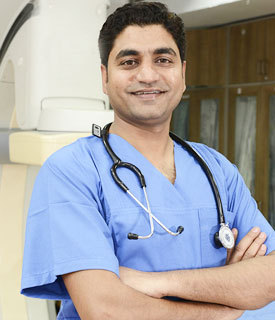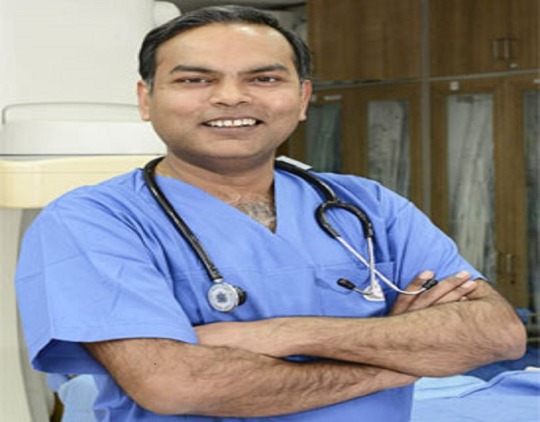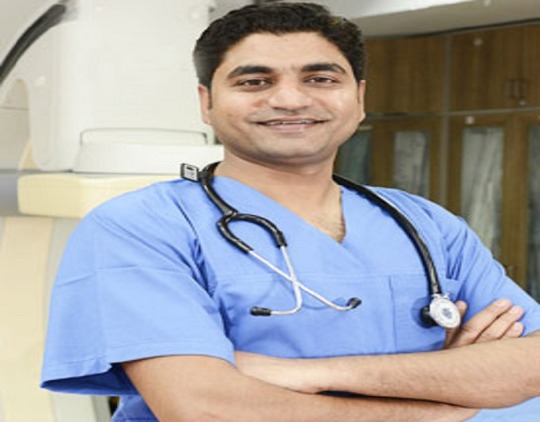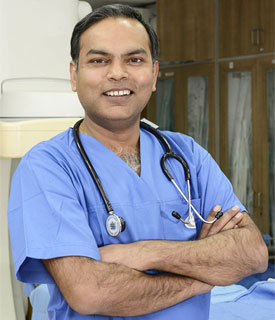#PinholesurgeryinDelhi
Explore tagged Tumblr posts
Text
#Uterine Artery Embolisation (UAE) And Ablation#interventionalradiologistindelhi#uterinefibroidtreatmentindelhi#pinholesurgeryindelhi#uterinearteryembolizationtreatmentdelhi#lymphangiographytreatmentindelhi#thyroidablationtreatmentindelhi#health & fitness#paetreatmentindelhi#taretreatmentindelhi#bphtreatmentindelhi
0 notes
Photo

Interventional radiologist (IR) is a medical specialist who performs minimally invasive curative or palliative treatments using radiologic imaging for procedure guidance. Interventional radiology treatments have become the primary method of care for a variety of conditions, offering less risk, less pain and less recovery time, compared to open surgery.
#interventionalradiologistindelhi#BPHtreatmentindelhi#PAEtreatmentindelhi#prostaticembolizationtreatmentindelhi#pinholesurgeryindelhi
0 notes
Text
#interventionalradiologistindelhi#uterinefibroidtreatmentindelhi#uterinearteryembolizationtreatmentdelhi#bphtreatmentindelhi#pinholesurgeryindelhi#thyroidablationtreatmentindelhi#paetreatmentindelhi#lymphangiographytreatmentindelhi#taretreatmentindelhi
0 notes
Text
Dr. Ajit Yadav, MBBS,DNB (Radiodiagnosis) - Interventional Radiologist in Delhi

Dr. Ajit Yadav MBBS,DNB (Radiodiagnosis)
Dr. Ajit K Yadav is consultant at Department of Interventional radiology, Sir Gangaram Hospital, New Delhi. After receiving a medical degree at the Pt BDS PGIMS, Rohtak, he served as medical officer at rural government hospital for 6 months. He completed residency training in radiodiagnosis at Sir Gangaram Hospital. He was national board certified in 2011, and went on to complete a fellowship in Interventional Radiology at GRIPMER, Delhi. He also visited MD Anderson cancer center, Houston, Texas, USA for short term fellowship in 2013. He attended short training programme on TACE at Seoul National University Hospital, South Korea in 2014. Dr. Yadav’s clinical interests include uterine artery embolization for minimally invasive treatment of uterine fibroids and post-partum hemorrhage, Bronchial artery embolization for hemoptysis, minimally invasive oncologic interventions (including transarterial chemoembolization, radioembolization and radiofrequency tumor ablation), and percutaneous interventions. In addition, he offers minimal invasive procedures for various diseases like Benign prostatic hyperplasia, Varicose veins, Liver diseases and traumatic bleeding.
His research interests include interventional treatment of liver malignancy, a topic in which he has written peer reviewed publications. He has authored more than 15 papers in the field of interventional radiology. He has also presented his work in numerous national and International meetings. In addition to clinical activities, he is an active teacher of residents including Interventional Radiology fellows.
He is a member of several professional organizations, Indian Radiological and Imaging Association (IRIA), Indian Society of Vascular and Interventional Radiology (ISVIR), and the Cardiovascular and Interventional Radiological Society of Europe (CIRSE). He is actively involved in Delhi chapter of ISVIR.
For more information- http://www.interventionalradiologyindia.com/
Tag- Interventional Radiologist in Delhi, Uterine fibroid treatment in Delhi, Pin hole surgery in Delhi
#Dr. AjitYadav#InterventionalRadiologistinDelhi#UterinefibroidtreatmentinDelhi#PinholesurgeryinDelhi#ProstateEmbolizationtreatmentinDelhi#UterinearteryembolizationtreatmentDelhi
2 notes
·
View notes
Text
#Interventional Radiologist in Delhi#pinholesurgeryindelhi#lymphangiographytreatmentindelhi#interventionalradiologistindelhi#bphtreatmentindelhi#taretreatmentindelhi#uterinearteryembolizationtreatmentdelhi
0 notes
Text

Dr. Arun Gupta
(Chairperson Department of Interventional Radiologist)
Dr Arun Gupta did his Masters in Radio Diagnosis from Ganesh Shanker Vidyarthi Medical (GSVM) College, Kanpur in 2002. He pursued super-specialization training during his Senior Residency (SR) in Interventional Radiology from Sanjay Gandhi Post Graduate Institute (SGPGI), Lucknow till 2005.
#BPH Treatment in Delhi#InterventionalRadiologistinDelhi#ThyroidablationtreatmentinDelhi#ProstateEmbolizationtreatmentinDelhi#UterinefibroidtreatmentinDelhi#PinholesurgeryinDelhi
0 notes
Text

#ProstateEmbolizationtreatmentinDelhi#UterinefibroidtreatmentinDelhi#UterinearteryembolizationtreatmentDelhi#ThyroidablationtreatmentinDelhi#InterventionalRadiologistinDelhi#PinholesurgeryinDelhi#BPHTreatmentinDelhi#TARETreatmentinDelhi#LymphangiographyTreatmentinDelhi#PAETreatmentinDelhi
0 notes
Text
#ProstateEmbolizationtreatmentinDelhi#UterinefibroidtreatmentinDelhi#UterinearteryembolizationtreatmentDelhi#ThyroidablationtreatmentinDelhi#InterventionalRadiologistinDelhi#PinholesurgeryinDelhi#BPHTreatmentinDelhi#TARETreatmentinDelhi#LymphangiographyTreatmentinDelhi#PAETreatmentinDelhi
0 notes
Text
Arun Gupta - Interventional Radiologist in Delhi

Dr. Arun Gupta (Chairperson Department of Interventional Radiologist)
Dr Arun Gupta did his Masters in Radio Diagnosis from Ganesh Shanker Vidyarthi Medical (GSVM) College, Kanpur in 2002. He pursued super-specialization training during his Senior Residency (SR) in Interventional Radiology from Sanjay Gandhi Post Graduate Institute (SGPGI), Lucknow till 2005.
In 2006, he joined Sir Ganga Ram Hospital as a Consultant and established Department of Interventional Radiology and presently is the Chairperson of the Department at the hospital. Under the capable leadership of Dr. Arun Gupta, the Department of Interventional Radiology, Sir Ganga Ram Hospital has reached new heights and continuously working for advancement and meteoric rise of the department.
Dr. Gupta is an international figure and a key opinion leader in the country in field of Interventional Radiology with numerous International and National paper publications, paper presentations and has taken national as well as international guest lectures. He is the Vice-President of the Indian Society of Vascular and Interventional Radiology and Member of Asia Pacific Society of Cardio-Vascular Interventional Radiology.
Dr. Arun Gupta has special academic interest in the Management of Hepatocellular Carcinoma and has one of the largest experiences in the country on Trans-arterial Chemo Embolization and has done a lot of research in this field. He also has one of the largest series of embolization for management of Hepatic Artery Pseudo-aneurysms. He is the First to perform Percutaneous Hepatico-gastrostomy in case of Portal Biliopathy all over the world.
He has excellent organisational skills and is involved in all academic and clinical activities of the department. He is a vision oriented person with the highest professional standards and has contributed largely to the development and recognition of Interventional Radiology in India. He also has established a comprehensive training program for Interventional Radiologists which can be implemented across the country to enhance patient care. He also wants to create an environment where healthcare costs can be reduced and treatment for diseases can be made more affordable to the masses.
For more information-www.interventionalradiologyindia.com
Tag-Interventional Radiologist in Delhi, Interventional Radiologist Near Me, Interventional Radiologist Near By
#InterventionalRadiologistinDelhi#ProstateEmbolizationtreatmentinDelhi#UterinefibroidtreatmentinDelhi#UterinearteryembolizationtreatmentDelhi#PinholesurgeryinDelhi#BPHTreatmentinDelhi#TARETreatmentinDelhi#LymphangiographyTreatmentinDelhi#PAETreatmentinDelhi
0 notes
Link
Interventional radiologist (IR) is a medical specialist who performs minimally invasive curative or palliative treatments using radiologic imaging for procedure guidance. Interventional radiology treatments have become the primary method of care for a variety of conditions, offering less risk, less pain and less recovery time, compared to open surgery.
#interventionalradiologistindelhi#PAEtreatmentindelhi#pinholesurgeryindelhi#prostaticembolizationtreatmentindelhi#BPHtreatmentindelhi
0 notes
Text
Who We Are ( Interventional Radiologist )?
Interventional radiologist (IR) is a medical specialist who performs minimally invasive curative or palliative treatments using radiologic imaging for procedure guidance. Interventional radiology treatments have become the primary method of care for a variety of conditions, offering less risk, less pain and less recovery time, compared to open surgery.
Interventional radiologists are trained physicians who specialize in minimally invasive, targeted treatments. They are also experts at reading x -rays, ultrasounds, CTs, MRIs, and other forms of medical imaging.
Department of Interventional Radiology (IR) in our hospital was started in year of 2006 by Dr. Arun Gupta who is working as chairperson since then. We are doing approximately 1000 vascular procedures in a year including all type of Body, peripheral and Onco-Interventions. Our department initiated a special training programme for one-year duration in 2012 to make interventional radiology more feasible across India.
We have done lot of publications which also contribute lot of information to society and medical fraternity.
TAG- Interventional Radiologist in India, Prostatic artery embolization treatment in Delhi, Lymphangiography Treatment in Delhi
#BPHtreatmentindelhi#interventionalradiologistindelhi#pinholesurgeryindelhi#PAEtreatmentindelhi#prostaticembolizationtreatmentindelhi
0 notes
Text
Drainage Procedure In Delhi
What is it?
Procedure in which a fine needle is placed into abdomen or lung cavity to drain out body fluids (under ultrasound guidance and local anesthesia).
Something more to know: Word diagnostic and therapeutic
Diagnostic : small amount of fluid is taken out for testing
Therapeutic: Large amount of fluid is withdrawn for relief of patient.
Why (Indications)?
To take out excess of fluid to know
Cause of disease (Diagnostic)
Temporary or permanent relief (Therapeutic)
What you are to do before procedure (Preparation)?
Book prior appointment
Visit us in OPD (9am-5pm) after breakfast, take prescribed medicine and with empty bladder(*No need to hold urine)
Referring Doctor prescription, previous lab results (*PT/INR), imaging etc.
If you are on blood thinner like Aspirin or warfarin inform during appointment.
One accompanying person
Need to sign a consent form for procedure
Approx. Stay in hospital?
We have very fast and competent working team (Consultant, fellow, clinical assistant, technician and ward assistant) which provide you comfortable atmosphere and ease your nerves. Usual time of stay is around two hours.
Complications:
These are very safe procedures with minor (<1%) complication done under local anaesthesia.
Mild pain can occur for which pain-killer medicines will be prescribed.
Mild risk of air entry into chest can occur, which can be managed by our team.
Resume to work?
You can resume your work after 4 hours if existing disease allows.
Results: When and How?
Sample fluid is sent for routine exam and culture of microorganism. Routine report takes 24 hrs. and culture can take up to 2-3 days.
TAG- Prostate Embolization treatment in Delhi, Thyroid ablation treatment in Delhi, Lymphangiography Treatment in Delhi, Uterine artery embolization treatment Delhi,
#interventionalradiologistindelhi#PAEtreatmentindelhi#BPHtreatmentindelhi#prostaticembolizationtreatmentindelhi#pinholesurgeryindelhi
0 notes
Photo

There are different causes for this condition and symptoms can vary depending on the individual. Some women do not experience any symptoms, but hydrosalpinx can have a severe impact on fertility.
#interventionalradiologistindelhi#PAEtreatmentindelhi#BPHtreatmentindelhi#prostaticembolizationtreatmentindelhi#pinholesurgeryindelhi
0 notes
Text
Female Infertility Treatment In Delhi
Hydrosalpinx is the name for a condition in which a woman’s fallopian tube becomes blocked with fluid.
There are different causes for this condition and symptoms can vary depending on the individual. Some women do not experience any symptoms, but hydrosalpinx can have a severe impact on fertility.
Symptoms of hydrosalpinx include:
abdominal and pelvic pain
unusual vaginal discharge
Diagnosis
Hydrosalpinx is characterized by one or both fallopian tubes being filled with water.
A doctor can diagnose hydrosalpinx using several methods. These include:
An ultrasound: This is one way of looking for hydrosalpinx, but is not as effective.
Hysterosalpingogram (HSG): This is a type of X-ray that can display tubal blockages. A special dye visible to the X-ray is introduced through the vagina and cervix.
Laparoscopy: Also known as keyhole surgery, a laparoscopy is a surgical procedure where small incisions are made in the abdomen, and a camera is inserted. This allows a surgeon to see the organs and remove fluid or other issues.
A diagnostic laparoscopy can also determine whether there is another issue that may be causing infertility, such as endometriosis.
Hydrosalpinx and infertility
Anyone with hydrosalpinx should seek professional advice for planning a pregnancy.
During conception, the egg travels from an ovary along the fallopian tube to the uterus. Hydrosalpinx causes the fallopian tube to become blocked with fluid, so the egg cannot pass down the tube, Also, the fimbria that help to draw the egg from the ovary into the tubes can become stuck together.
If only one fallopian tube is blocked, it is still possible to conceive without intervention, as eggs from the other ovary will still be able to make it to the uterus.
There is also a chance that the fluid build up could leak into the uterus and interfere with the embryo implanting itself properly.
Treatment and management
The most common treatment for a woman with hydrosalpinx is to have surgery to remove the affected tube. This type of surgery is known as salpingectomy.Surgery may also be offered to remove scar tissue or other adhesions that could be affecting fertility. If endometriosis is found to be the cause, doctors can also remove the endometrial growths.
Another possible treatment is sclerotherapy. Sclerotherapy is where an ultrasound-guided needle is used to draw fluid out of the affected tube. A special chemical, called a sclerosing agent, is then injected, which should prevent the fluid from building back up again.
Interventional ultrasound sclerotherapy before IVFis a very effective and acceptable prophylactic intervention alternative to salpingectomy for patients with hydrosalpinx, with no adverse effect on ovarian reserve and responsiveness during the IVF procedure.
Interventional ultrasound sclerotherapy before the IVF cycle can improve the endometrial receptivity and pregnancy rate.
What you are to do before procedure (Preparation)?
Book prior appointment
Visit us in OPD (9am-5pm) after breakfast, take prescribed medicine and with empty bladder(*No need to hold urine)
Referring Doctor prescription, previous lab results (*PT/INR), imaging etc.
If you are on blood thinner like Aspirin or warfarin inform during appointment.
One accompanying person
Need to sign a consent form for procedure
Approx. Stay in hospital?
We have very fast and competent working team (Consultant, fellow, clinical assistant, technician and ward assistant) which provide you comfortable atmosphere and ease your nerves. Usual time of stay is around 6 hours.
Complications:
These are very safe procedures with minor (<1%) complication. Mild pain can occur for which medicines will be given. There should be no lingering pain or other unpleasant sensation.
Resume to work?
You can resume your work after 1 day if existing disease allows.
TAG- Prostate Embolization treatment in Delhi, Thyroid ablation treatment in Delhi, Lymphangiography Treatment in Delhi, Uterine artery embolization treatment Delhi
#pinholesurgeryindelhi#prostaticembolizationtreatmentindelhi#interventionalradiologistindelhi#BPHtreatmentindelhi#PAEtreatmentindelhi
0 notes
Photo

A transjugular intrahepatic portosystemic shunt (TIPS) is a percutaneously created connection within the liver between the portal and systemic circulations.
#interventionalradiologistindelhi#PAEtreatmentindelhi#pinholesurgeryindelhi#prostaticembolizationtreatmentindelhi#BPHtreatmentindelhi
0 notes
Text
Liver Cirrhosis And PHT
What is it?
A trans jugular intrahepatic portosystemic shunt (TIPS) is a percutaneously created connection within the liver between the portal and systemic circulations.
It is placed to reduce portal pressure in patients with complications related to portal hypertension.
This procedure has emerged as a less invasive alternative to surgery in patients with end-stage liver disease.
The goal of TIPS placement is to divert portal blood flow into the hepatic vein, so as to reduce the pressure gradient between portal and systemic circulations.
Shunt patency is maintained by placing an expandable metal stent across the intrahepatic tract
Patient has to take lifelong blood thinner in some condition like buddchiari syndrome.
Why (Indications)?
Acute variceal bleeding that cannot be successfully controlled with medical treatment, including sclerotherapy.
Recurrent and refractory variceal bleeding
Therapy for refractory ascites.
Portal decompression in patients with hepatic venous outflow obstruction (Budd-Chiari syndrome) or hepatorenal syndrome.
Why Not (Contraindication)?
Absolute contraindications:
Right-sided heart failure with increased central venous pressure
Polycystic liver disease
Relative contraindications:
Active intra hepatic or systemic infection
Severe hepatic encephalo-pathy poorly controlled with medical therapy
Hyper vascular hepatic tumors
P V thrombosis
What you are to do before procedure (Preparation)?
Visit us in OPD (9-5) with previous lab results (*CBC, LFT, Serum Creatinine, PT/INR), imaging etc.
If you are on blood thinner like Aspirin inform during appointment.
Get admission one day prior to scheduled procedure.
One accompanying person
Need to sign a consent form for procedure
Cash or ATM card
Approx. Stay in hospital?
We have very fast and competent working team (Consultant, fellow, clinical assistant, technician and ward assistant) which provide you comfortable atmosphere and ease your nerves. Usual time of stay is around 2-3 Days.
Complications:
Obstruction to flow
Shunt obstruction (38%)
Hepatic vein stenosis
Trauma
Vascular injury
Biliary injury
Stent dislodgement
Resume to work?
You can resume your work after 1 week if existing disease allows.
Results: When and How?
Follow-up Doppler after 3 days, 7 days, 1 month than every 3-6 month.
TAG- Prostate Embolization treatment in Delhi, Thyroid ablation treatment in Delhi, Lymphangiography Treatment in Delhi, Uterine artery embolization treatment Delhi
#interventionalradiologistindelhi#pinholesurgeryindelhi#prostaticembolizationtreatmentindelhi#PAEtreatmentindelhi#BPHtreatmentindelhi
0 notes